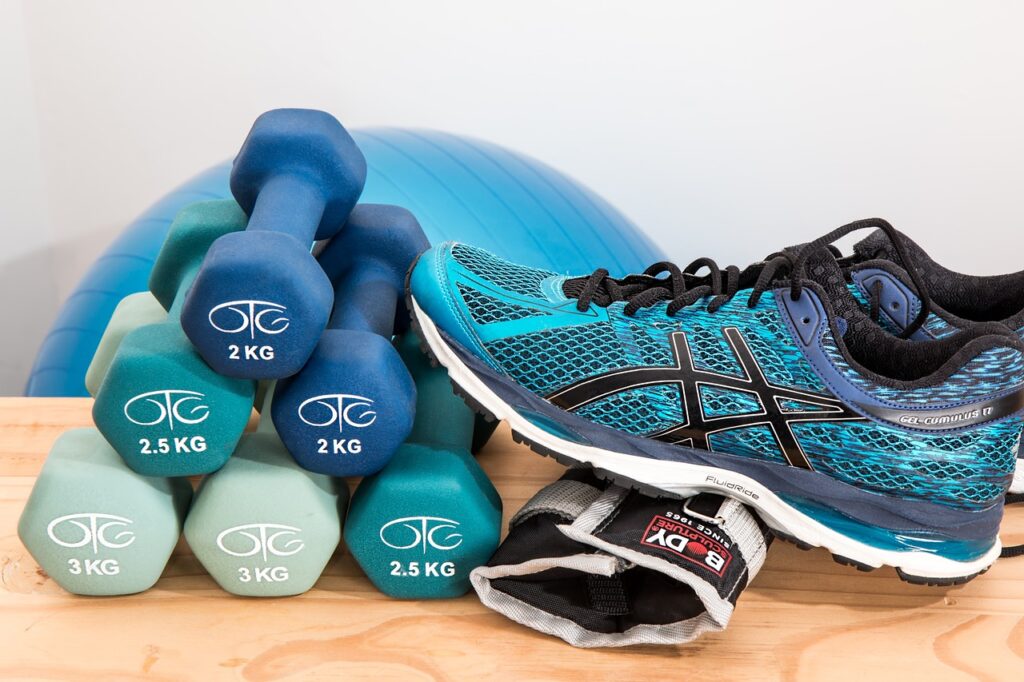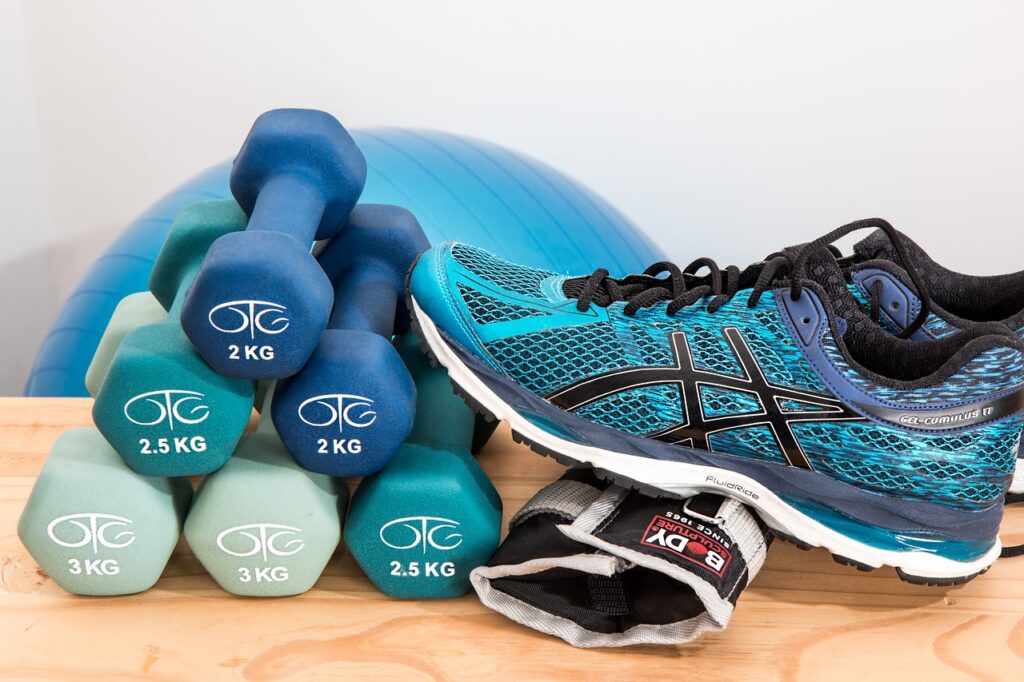Imagine being able to optimize your workouts and nutrition to achieve the maximum results in muscle growth and fat burning. Well, the good news is that the science behind nutrient timing holds the key to unlocking your body’s full potential. By strategically planning when and what you eat, you can provide your muscles with the essential nutrients they need to grow and recover efficiently while simultaneously maximizing your body’s fat-burning potential. In this article, we will explore the fascinating world of nutrient timing and delve into the scientific principles that underpin its effectiveness in achieving your fitness goals. Get ready to take your workouts to the next level and unveil a leaner, stronger version of yourself.


The Basics of Nutrient Timing
What is nutrient timing?
Nutrient timing refers to the strategic manipulation of nutrient intake, primarily carbohydrates, protein, and fats, to enhance athletic performance, promote muscle growth, and facilitate fat burning. It involves consuming specific nutrients at specific times to maximize their benefits during workouts and recovery periods.
How does it impact muscle growth?
Nutrient timing plays a crucial role in muscle growth as it provides the body with the necessary building blocks to repair and rebuild muscle tissue. By consuming a combination of protein and carbohydrates before and after workouts, you can enhance muscle protein synthesis, increase muscle glycogen stores, and promote optimal recovery, leading to greater gains in muscle mass over time.
How does it impact fat burning?
Similarly, nutrient timing can also impact fat burning. By strategically timing carbohydrate intake, you can manipulate insulin levels and enhance fat utilization during exercise. Pairing this with appropriate calorie and macronutrient intake can help maintain muscle mass while promoting fat loss.
Key Nutrients for Muscle Growth and Fat Burning
Protein
Protein is an essential macronutrient for both muscle growth and fat burning. It provides the body with amino acids, which are the building blocks of muscle tissue. Consuming an adequate amount of protein throughout the day, especially around workouts, can stimulate muscle protein synthesis and improve recovery. Aim for a variety of high-quality sources such as lean meats, poultry, fish, eggs, dairy products, and plant-based proteins like legumes and tofu.
Carbohydrates
Carbohydrates are the body’s primary source of energy and play a vital role in fueling workouts and replenishing glycogen stores. The timing of carbohydrate consumption is crucial for optimizing muscle growth and fat burning. Consuming carbohydrates before and after workouts can enhance muscle glycogen replenishment and promote recovery. It is important to choose complex carbohydrates such as whole grains, fruits, vegetables, and legumes, as they provide sustained energy and essential nutrients.
Fats
While often misunderstood and associated with weight gain, dietary fats are crucial for overall health and can support fat burning when consumed in moderation. Healthy fats, such as those found in avocados, nuts, seeds, and fatty fish, provide essential fatty acids and fat-soluble vitamins. They also help regulate hormone production and promote satiety. Including a moderate amount of healthy fats in your diet can support nutrient timing for both muscle growth and fat burning.
Pre-Workout Nutrition
The importance of pre-workout nutrition
Pre-workout nutrition is essential to provide your body with the necessary fuel and nutrients to perform at its best during exercise. Consuming a balanced meal or snack before your workout can enhance energy levels, improve stamina, and prevent muscle breakdown.
Optimal macronutrient ratios
The ideal macronutrient ratio for pre-workout nutrition includes a combination of carbohydrates and protein, with a focus on easily digestible options to provide quick energy. Aim for a ratio of approximately 2:1 or 3:1 carbohydrates to protein. For example, a banana with a tablespoon of peanut butter or a Greek yogurt with berries can serve as excellent pre-workout snacks.
Timing of pre-workout meal/snack
The timing of your pre-workout meal or snack depends on personal preference and digestion. Generally, consuming a meal two to three hours before exercise allows for proper digestion and nutrient absorption. If you have less time, a smaller snack 30 to 60 minutes before your workout can still provide a boost of energy. Experiment with different timings to find what works best for you.
Intra-Workout Nutrition
The benefits of intra-workout nutrition
Intra-workout nutrition involves consuming nutrients during your exercise session to enhance performance, sustain energy levels, and facilitate muscle recovery. While not essential for every individual, it can be beneficial for those engaging in prolonged or intense workouts, such as endurance athletes or individuals performing high-intensity interval training.
Fluid and electrolyte replenishment
Staying hydrated during workouts is crucial for optimal performance and recovery. Sip on water or a sports drink containing electrolytes to replace fluids and maintain electrolyte balance during prolonged exercise.
Carbohydrate supplementation
For longer endurance exercises lasting over an hour, consuming carbohydrates in the form of gels, energy bars, or sports drinks can provide a quick source of energy and help delay fatigue. These supplements are easily digestible and absorbed by the body, allowing for sustained energy levels during prolonged physical activity.
Protein supplementation
While the focus of intra-workout nutrition is primarily on carbohydrate and fluid replenishment, protein supplementation may be beneficial for individuals engaging in resistance training or endurance exercises lasting several hours. BCAA (branched-chain amino acids) supplementation or protein shakes can help prevent muscle breakdown during prolonged exercise sessions.


Post-Workout Nutrition
The anabolic window
The post-workout period, also known as the anabolic window, is a crucial time for muscle recovery and growth. During this time, the body is most receptive to nutrients, making it an optimal opportunity to refuel and repair.
Importance of protein-induced muscle protein synthesis
The consumption of protein-rich foods or supplements post-workout stimulates muscle protein synthesis, the process through which new muscle tissue is formed. Consuming an adequate amount of protein, ideally within two hours of exercise, can maximize muscle repair and promote muscle growth.
Timing of post-workout meal/snack
To optimize nutrient timing for muscle growth, aim to consume a post-workout meal or snack within 30 minutes to two hours after exercise. This timeframe allows the body to efficiently utilize the nutrients for muscle repair and recovery. High-quality protein sources like lean meats, poultry, fish, dairy products, and plant-based proteins should be prioritized, along with carbohydrates to replenish glycogen stores.
Optimal post-workout macronutrient ratios
The ideal post-workout macronutrient ratio varies depending on individual needs and goals. However, a general recommendation is to include a balance of carbohydrates and protein. A ratio of approximately 3:1 or 4:1 carbohydrates to protein is often suggested to optimize glycogen replenishment and muscle protein synthesis.
Timing Your Meals for Optimal Muscle Growth
Meal frequency and timing
In addition to pre, intra, and post-workout nutrition, the overall timing and frequency of meals throughout the day can impact muscle growth. Consuming regular meals and snacks every three to four hours ensures a constant supply of nutrients for muscle repair and growth.
Spacing protein intake throughout the day
Distributing protein intake evenly throughout the day is important for muscle protein synthesis. Aim for approximately 20-30 grams of protein per meal, including snacks. This practice ensures a sustained elevation of amino acids in the bloodstream, allowing for continuous muscle building.
Balancing nutrient timing for muscle growth and fat burning
While nutrient timing plays a significant role in muscle growth, it is essential to balance it with fat-burning goals. To promote fat burning, consider adjusting your carbohydrate intake to align with higher activity periods, such as workouts, and focus on whole, nutrient-dense foods. Balancing nutrient timing for muscle growth and fat burning requires individualization based on goals, preferences, and activity level.


Nutrient Timing for Fat Burning
Effects of nutrient timing on metabolism
Strategic nutrient timing can impact metabolism by influencing hormone levels, particularly insulin. By timing carbohydrate intake around workouts and reducing carbohydrate consumption during periods of lower energy demand, you can create an environment more conducive to fat burning.
Impact of carbohydrates on fat burning
While carbohydrates are a valuable energy source, excessive consumption, particularly of refined carbohydrates, can hinder fat burning. By moderating carbohydrate intake and prioritizing complex carbohydrates, individuals can enhance fat utilization and maintain steady energy levels.
Timing of carbohydrates for fat burning
To promote fat burning, it can be beneficial to focus carbohydrate consumption around periods of increased activity, such as during workouts. Consuming carbohydrates before and after exercise provides energy when it is most needed and enhances muscle glycogen replenishment, while limiting carbohydrate intake during periods of low activity supports fat burning.
The role of fats in improving fat burning
Incorporating healthy fats into your diet can support fat burning by promoting satiety and stabilizing blood sugar levels. Fats slow down digestion, ensuring a steady release of energy and preventing blood sugar spikes that may lead to increased fat storage. Focus on sources such as avocados, nuts, seeds, olive oil, and fatty fish for their beneficial fat content.
The Importance of Individualization
Individual differences in nutrient timing needs
It is crucial to recognize that nutrient timing needs may vary among individuals. Factors such as age, sex, body composition, metabolism, and activity level can influence nutrient requirements and optimal timing strategies. Experimentation, self-awareness, and potentially consulting with a registered dietitian or sports nutritionist can help determine the ideal nutrient timing approach for your specific needs.
Considering personal goals and preferences
Personal goals and preferences should also guide nutrient timing strategies. Whether the primary focus is muscle growth, fat burning, or performance enhancement, individualizing nutrient timing will ensure a plan aligned with personal goals and preferences. Experiment with different timing protocols and monitor how they impact your energy levels, performance, and body composition to find what works best for you.
Evidence and Research
Scientific studies on nutrient timing
Nutrient timing is a topic of ongoing research, with numerous studies exploring its effects on athletic performance, muscle growth, and fat burning. While some research suggests significant benefits, other studies show more modest effects. Evidence supports the importance of adequate protein intake, particularly after exercise, in enhancing muscle protein synthesis. However, the overall impact of nutrient timing on performance and body composition may vary based on individual characteristics and specific protocols.
Criticism and limitations of nutrient timing studies
Critics argue that the effects of nutrient timing are overstated, and the emphasis on timing carbohydrates and protein may overshadow the importance of overall calorie and macronutrient intake. Additionally, individual responses to nutrient timing protocols can vary, making it difficult to draw definitive conclusions. It is essential to consider the limitations of existing research and interpret findings in the context of individual goals and preferences.
Practical Tips for Nutrient Timing
Consulting with a registered dietitian or sports nutritionist
If you are unsure how to approach nutrient timing or have specific dietary goals, seeking guidance from a registered dietitian or sports nutritionist can be highly beneficial. These professionals can analyze your current diet, activity level, and goals to create a personalized nutrient timing plan and provide evidence-based recommendations.
Keeping a food diary
Maintaining a food diary can help monitor your nutrient intake, timing, and how it affects your energy levels, performance, and body composition. By tracking your meals, snacks, and workouts, you can identify patterns and make adjustments as needed. A food diary can serve as a valuable tool in evaluating the effectiveness of your nutrient timing strategies.
Experimenting with different timing strategies
Finding the optimal nutrient timing strategy is a process of experimentation. Explore different timing protocols, such as adjusting pre and post-workout meals/snacks, spacing protein intake throughout the day, and manipulating carbohydrate consumption during high and low activity periods. Monitor how these strategies impact your energy levels, performance, and body composition to identify the most effective approach for your unique needs.
Incorporating nutrient timing into your fitness and nutrition routine can provide significant benefits for muscle growth and fat burning. By understanding the basics of nutrient timing, key nutrients for muscle growth and fat burning, and the various aspects of pre, intra, and post-workout nutrition, you can tailor your approach to achieve optimal results. Remember to consider individual differences, personal goals, and preferences, and consult with professionals if necessary. With consistency and experimentation, nutrient timing can help you maximize your fitness journey.



